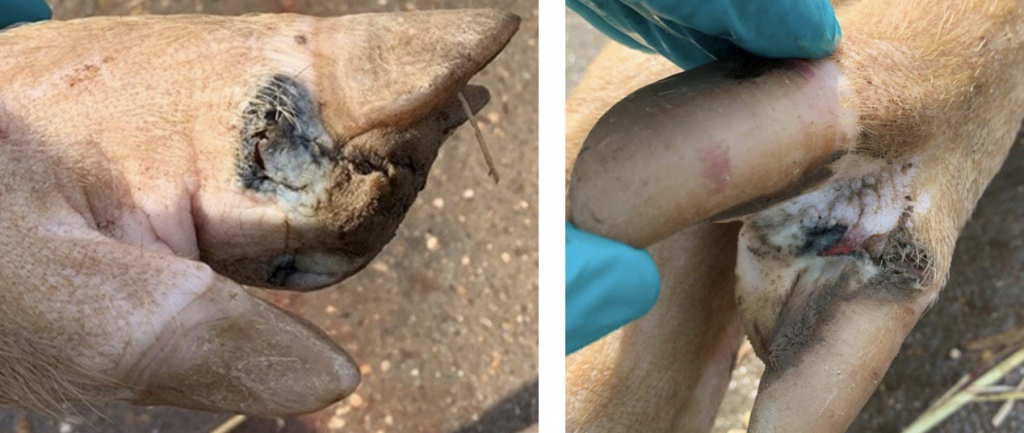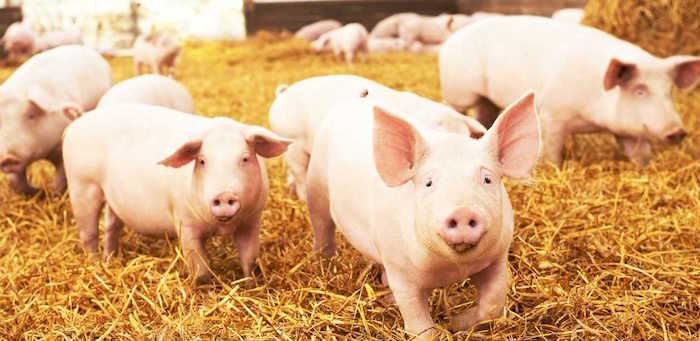Defra has confirmed that five cases of Seneca Valley Virus (SVV) were detected on pig units in England between June and September 2022.
The confirmation today from the UK Chief Veterinary Officer today follows an extensive investigation by the Animal Plant Health Agency (APHA) into the five cases of vesicular disease that were identified in a single geographical.
SVV is not a notifiable or reportable disease in the UK is not a listed disease by the World Organisation of Animal Health (WOAH). Defra also stressed that it only affects pigs for a short period with infected pigs making a full recovery and there is no risk to human health.
However, the clinical signs do resemble notifiable vesicular diseases, in particular foot-and-mouth disease. Defra is therefore calling on pig producers and vets to continue to promptly report any clinical signs of vesicular disease in pigs so that APHA can carry out an official investigation.
It stressed that high biosecurity standards should always be maintained, including:
- Regular reviews of their biosecurity measures and address any weaknesses, minimising movements of vehicles, people or equipment onto pig units
- Controlling rodents, flies and as far as possible, wild birds
- Isolating incoming pigs away from the resident herd for at least one month
- Sourcing pig food or ingredients from reputable pig feed companies and never feeding kitchen or catering waste or meat to pigs
- Following the National Pig Association import protocol if importing live pigs
To minimise the risk of disease introduction and keepers should inspect their pigs at least once a day, staying vigilant for lameness and vesicular (blister) foot or snout/mouth lesions. The advice applies to all pig keepers, no matter how many pigs they own.
Pig keepers and the public are also reminded that it is illegal to feed pigs meat or meat products, and kitchen or catering waste. Doing so endangers the health of the pigs and risks introducing exotic diseases, such as foot-and-mouth disease or African swine fever, into the country.
- More information can be found in APHA’s disease surveillance and emerging threats report for Q3.

NPA chief executive Lizzie Wilson reiterated the advice to producers to report any signs of clinical disease and stressed that maintaining high biosecurity standards at all times is ‘absolutely paramount’.
“It is important to stress, however, that SVV is not a notifiable disease and is not listed by WOAH. Disease is relatively mild and of short duration, with current information suggesting that there is limited production loss in affected herds,” she said.
“The virus is generally accepted to be incapable of causing disease in humans, and there is no record of SVV causing symptomatic human disease.
“The main concern regarding SVV is its clinical resemblance to vesicular notifiable diseases, such as foot-and-mouth disease (FMD), swine vesicular disease and vesicular stomatitis. That is why it is so important for pig producers and vets to report any clinical signs of vesicular disease promptly for official investigation, which enables notifiable vesicular diseases to be ruled out by testing.”
“The UK has a robust system for notification, investigation, and control of suspect notifiable diseases and all cases of suspect notifiable disease must be reported to the authorities, in which case restrictions are immediately applied and official investigations carried out. Pig producers are urged to follow the guidance from APHA.”
This virus had not previously been found in the UK but is known to have caused clinical disease in pigs in a number of countries worldwide, including the USA, Canada, Brazil, Colombia, China, Thailand, Vietnam and Chile.




